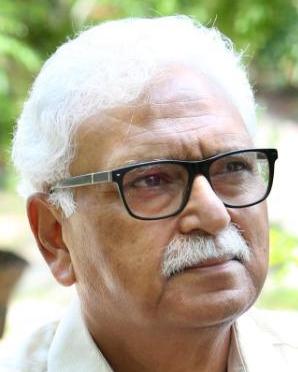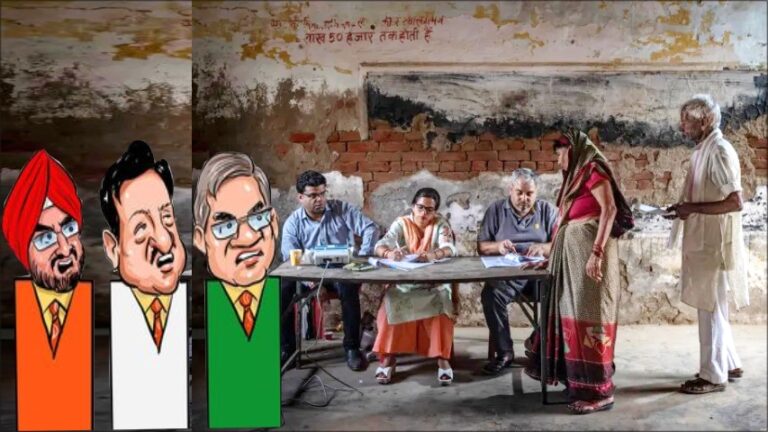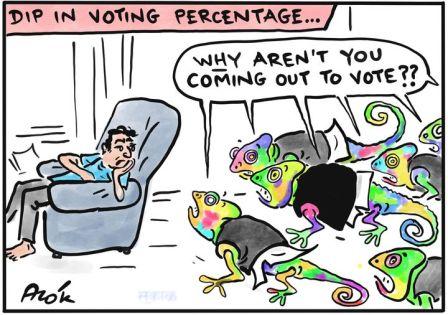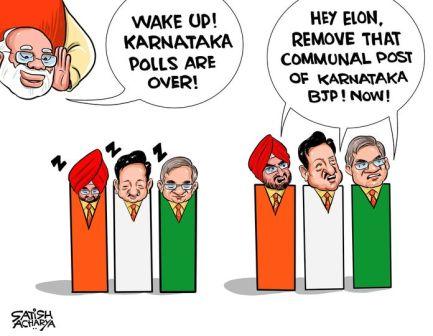

WITH VOTING completed in half of the Lok Sabha constituencies at the end of the third phase of polling, the most worrying factor that has emerged is the low turnout of voters.
On average, it is about 3.5 per cent lower polling compared to the previous elections in 2019, which translates into lakhs of voters not exercising their franchise.
 The decline in the number is despite an extensive awareness drive launched by the Election Commission of India and a fervent appeal by the prime minister to all voters, particularly to the first-time voters.
The decline in the number is despite an extensive awareness drive launched by the Election Commission of India and a fervent appeal by the prime minister to all voters, particularly to the first-time voters.
Voting percentage has gone down even in states like Gujarat, where the turnout is just about 58 per cent, lower than that in the 2014 and 2019 elections. It was 64.11 per cent in the previous elections. In Uttar Pradesh, it’s the same story.
There was a general belief that cadre-based political parties tend to gain if the voting percentage is lower because the committed cadre voters of such parties go for voting come what may. It also implies that non-cadre-based political parties, which depend on floating voters, stand to lose. However, this theory has been proved wrong a number of times.

One of these is the voter’s apathy towards the current political scenario. A section might have come to the conclusion that it was a one-party race and there was no point in voting.
There are also reports that a substantial number of voters in Uttar Pradesh decided not to go for polling for fear of high-handedness by workers of a political party.
However, one of the major reasons could be the long-drawn schedule of elections lasting over a month and a half. It’s the largest period of time for holding Lok Sabha elections in the country.
And it is the first time that general election results would be declared in the month of June. This could have adversely affected the polling percentage by causing political exhaustion and the rising temperatures across the country.
The Election Commission has not come out with any credible answer to the question of spreading the electoral process for such a long period during the peak summer wave. Temperatures in most parts of the country have already crossed 40 degrees Celsius and are likely to get worse during the month of May.
The only conclusion one can arrive at is that the Election Commission would have been influenced by the suitability of the campaign by the prime minister and other star campaigners of the ruling party.

The scattered phases, rather than completing the process in specific states at a go and moving security forces to other states, indicate some ‘strategy’ in fixing the dates of elections.
The Commission might take the stand that the number of voters is growing and therefore a longer period of time is required. However, it’s worth recalling that the general elections in the past used to be over within a week … at times even in two days, like in 1980.
Another point of concern is the talk about one nation, one election which the BJP has promised to introduce if it retains power. Simultaneous elections for Lok Sabha and all the state assemblies would require much larger infrastructure and resources.
Former president Ram Nath Kovind, who headed the committee that has recommended one nation, one poll plan for the country, has suggested that the elections should invariably be held in weather conditions conducive to maximum participation of voters.
Perhaps February-March or October-November should be considered for polling even if it means curtailing the terms of Lok Sabha or Vidhan Sabhas to suit the weather conditions for polling. ![]()
__________
Also Read:
Dr. Manmohan Singh: A Hero Shy of His Own Greatness
‘Yahi Hai Mera Mama’ – A commentary on Lok Sabha Elections
AAP under scrutiny; Delving into poetic justice
Hai, Modi kitna bura hai! (Agreed. But…)
Relax, My dead body won’t trouble your shoulders!
Shilanyas was a mistake, but Rajiv was not aware of unlocking Babri

Disclaimer : PunjabTodayTV.com and other platforms of the Punjab Today group strive to include views and opinions from across the entire spectrum, but by no means do we agree with everything we publish. Our efforts and editorial choices consistently underscore our authors’ right to the freedom of speech. However, it should be clear to all readers that individual authors are responsible for the information, ideas or opinions in their articles, and very often, these do not reflect the views of PunjabTodayTV.com or other platforms of the group. Punjab Today does not assume any responsibility or liability for the views of authors whose work appears here.
Punjab Today believes in serious, engaging, narrative journalism at a time when mainstream media houses seem to have given up on long-form writing and news television has blurred or altogether erased the lines between news and slapstick entertainment. We at Punjab Today believe that readers such as yourself appreciate cerebral journalism, and would like you to hold us against the best international industry standards. Brickbats are welcome even more than bouquets, though an occasional pat on the back is always encouraging. Good journalism can be a lifeline in these uncertain times worldwide. You can support us in myriad ways. To begin with, by spreading word about us and forwarding this reportage. Stay engaged.
— Team PT


Copyright © Punjab Today TV : All right Reserve 2016 - 2025 |